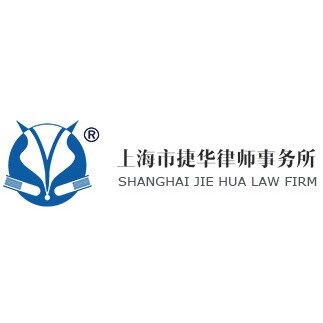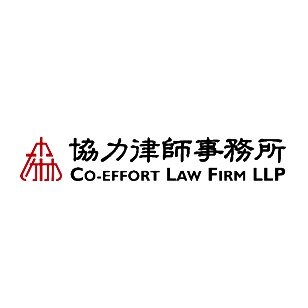Best Administrative Lawyers in China
Share your needs with us, get contacted by law firms.
Free. Takes 2 min.
Or refine your search by selecting a city:
List of the best lawyers in China
About Administrative Law in China
Administrative law in China focuses on the legal principles governing the activities of administrative agencies of government. It is a legal framework that regulates the creation, operation, and control of various public administrative authorities. This field of law involves the procedures and actions of government institutions, handling of public matters, and the relationship between the government and the citizens. In recent years, China has been enhancing its administrative law system to promote rule of law in governance, stressing transparency, accountability, and public participation.
Why You May Need a Lawyer
There are numerous situations where individuals or entities may require legal assistance in administrative matters in China. Common cases include disputes over administrative decisions, such as licensing, permits, and regulatory compliance. Businesses often need guidance on navigating the complexities of administrative regulations to ensure compliance with environmental, safety, and labor standards. Additionally, individuals might need legal help to challenge unfair administrative actions, seek compensation for administrative misconduct, or require representation in administrative litigation.
Local Laws Overview
China's administrative law is governed by key statutes like the Administrative Litigation Law, the Administrative Penalty Law, and the Administrative Reconsideration Law. These laws establish the framework for how administrative decisions should be made and challenged. Local governments also implement supplementary regulations that address specific administrative functions in their jurisdiction. Key aspects include the right to challenge administrative actions, the process for administrative reconsideration, the standards for administrative penalties, and the procedures for administrative supervision and remedies.
Frequently Asked Questions
1. What is the role of administrative reconsideration in China?
Administrative reconsideration allows individuals to request a review of an administrative decision by a higher authority within the government, aiming for a more fair judgment without resorting to litigation.
2. How does one challenge an administrative decision?
To challenge an administrative decision, a person may file a reconsideration application or an administrative lawsuit in court, depending on the specific circumstances and applicable laws.
3. What is administrative litigation?
Administrative litigation is a legal process wherein a court reviews the legality of an administrative action or decision challenged by an individual or organization.
4. How are administrative penalties imposed?
Administrative penalties are imposed following a legal procedure where an administrative authority assesses the violation, provides an opportunity for defense, and then decides on an appropriate penalty.
5. Can foreign businesses participate in administrative litigation in China?
Yes, foreign businesses can participate in administrative litigation in China if they are directly affected by administrative actions or decisions concerning their operations in China.
6. What is the time limit for filing an administrative lawsuit?
The time limit for filing an administrative lawsuit is typically within six months from the day the individual or organization learns of the administrative action they wish to challenge.
7. Are there any alternative dispute resolutions available for administrative matters?
Yes, besides litigation, other options like administrative reconsideration and mediation can serve as alternative dispute resolutions for administrative matters.
8. Can administrative laws be challenged for unconstitutionality?
While individual administrative actions can be challenged, laws themselves are reviewed for constitutionality within a broader legislative and judicial framework, rather than through direct administrative law processes.
9. What rights do individuals have against administrative authorities?
Individuals have the right to be informed, the right to be heard, the right to access legal redress, and the right to appeal against unfair or illegal administrative actions.
10. What legal recourse is available for administrative misconduct?
Victims of administrative misconduct can seek redress through administrative reconsideration, court litigation, or file complaints with relevant oversight bodies for disciplinary actions against the officials involved.
Additional Resources
Those seeking further assistance in administrative law matters can refer to the Ministry of Justice, local Legal Aid Centers, and the administrative law sections of major universities in China. Organizations like the All China Lawyers Association provide resources for finding qualified administrative law practitioners. Online platforms managed by the government offer legal information and guidance for common administrative issues.
Next Steps
If you need legal assistance in administrative matters, consider consulting with a qualified administrative lawyer who specializes in Chinese administrative law. Prepare all relevant documents and information to facilitate the legal consultation process. It may also be beneficial to explore alternative dispute resolution mechanisms, such as administrative reconsideration, before pursuing formal litigation. Seeking advice early can be crucial in navigating administrative complexities effectively.
Lawzana helps you find the best lawyers and law firms in China through a curated and pre-screened list of qualified legal professionals. Our platform offers rankings and detailed profiles of attorneys and law firms, allowing you to compare based on practice areas, including Administrative, experience, and client feedback.
Each profile includes a description of the firm's areas of practice, client reviews, team members and partners, year of establishment, spoken languages, office locations, contact information, social media presence, and any published articles or resources. Most firms on our platform speak English and are experienced in both local and international legal matters.
Get a quote from top-rated law firms in China — quickly, securely, and without unnecessary hassle.
Disclaimer:
The information provided on this page is for general informational purposes only and does not constitute legal advice. While we strive to ensure the accuracy and relevance of the content, legal information may change over time, and interpretations of the law can vary. You should always consult with a qualified legal professional for advice specific to your situation.
We disclaim all liability for actions taken or not taken based on the content of this page. If you believe any information is incorrect or outdated, please contact us, and we will review and update it where appropriate.
Browse administrative law firms by city in China
Refine your search by selecting a city.















